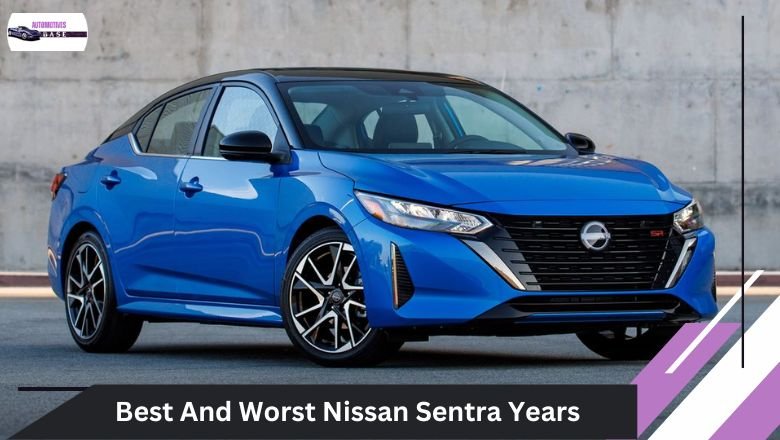The Nissan Sentra has been a staple in the compact car market for decades, offering reliability, efficiency, and style to drivers around the world. Not all model years are created equal. In this article, we will take a deep dive into the best and worst Nissan Sentra years, exploring the standout features that have made some models shine while others have left much to be desired.
Each year of the Nissan Sentra brings its own unique characteristics and quirks from sleek designs to innovative technology advancements. There is something for everyone when it comes to this versatile vehicle whether you are a die-hard fan of the classic styling of older models or prefer the modern amenities found in newer releases.
Nissan Sentra Generations
The Nissan Sentra has certainly come a long way since its debut in 1982, evolving through various generations to become a popular choice in the compact car market. The Sentra has continued to impress with its blend of fuel efficiency, affordability, and sleek design, starting from the year 2000.
Each new generation has brought improvements and innovations, keeping the Sentra relevant and competitive in its segment.The Nissan Sentra has further solidified its position as a top-selling vehicle, offering modern features and technology while maintaining its reputation for reliability and value in the recent years.
Drivers looking for a practical and stylish compact car have found the Sentra to be a dependable choice that delivers on performance and comfort. The overview of Sentra generation from 2000 to the present is presented below in the table.
| Generation | Years |
|---|---|
| 5th generation (B15) | 2000-2006 |
| 6th generation (B16) | 2007-2012 |
| 7th generation (B17) | 2013-2019 |
| 8th generation (B18) | 2020-Present |
Nissan Sentra Best, Neutral, and Worst Years
Factors:
- Owner-reported reliability (surveys)
- Annual maintenance costs
- Safety ratings
- Consumer Reports reliability scores
- Consumer Reports owner satisfaction scores
- NHTSA recalls, investigations, and complaints
- Edmunds owner ratings
- JD Power owner ratings
- Kelley’s Blu
- e Book (KBB) owner ratings
- VehicleHistory owner ratings
- Cars.com owner ratings
Combined Overall Score Of Nissan Senta is described in this graph.
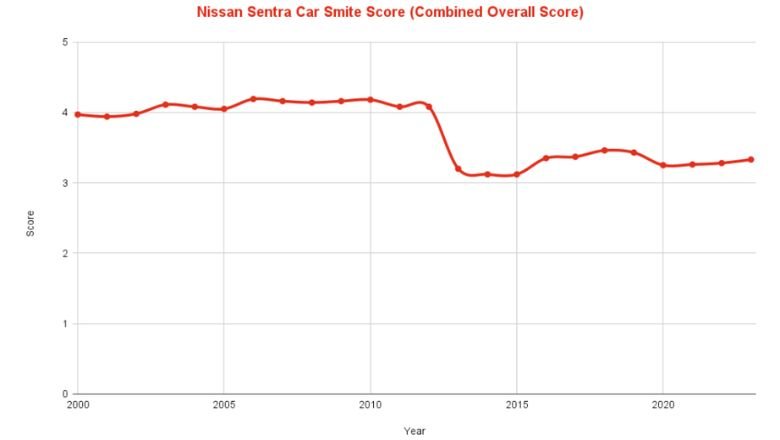
Nissan best, worst and neutral years are all described in the table below:
| Generations | Best Years | Neutral Years | Worst Years |
|---|---|---|---|
| 5th generation (B15) | 2004 2005 2006 | N/A | 2000 2001 2002 2003 |
| 6th generation (B16) | 2009 2012 | 2007 2011 | 2008 2010 |
| 7th generation (B17) | 2017 2018 2019 | N/A | 2013 2014 2015 2016 |
| 8th generation (B18) | 2023 | 2021 2022 | 2020 |
The neutral years can be seen as a safe bet for those seeking a balance between reliability and potential issues when looking at the Nissan Sentra model years. These years typically fall in the middle ground, where they are not known for being the most reliable but also do not have significant problems plaguing them.
It is important to consider factors like NHTSA recalls when evaluating a car’s ranking, as a higher number of complaints and recalls often indicate lower reliability. It is crucial to do thorough research and consider individual preferences and priorities in terms of the best, neutral, and worst years for the Nissan Sentra.
While some may prioritize reliability above all else and opt for the best year available, others may find that a neutral year strikes the right balance between performance and potential issues.
Best And Worst Nissan Sentra Years, 5th Generation (2000-2006)
It is important to note that not all years are equal in terms of reliability and performance when considering the Nissan Sentra’s 5th generation spanning from 2000 to 2006. The early years of 2000, 2001, 2002, and 2003 have been highlighted as ones to avoid due to potential issues with engine performance and build quality.
In contrast, the later years of 2004, 2005, and 2006 have garnered a more positive reputation for being the best years of this generation. These models are often praised for their improved design, enhanced features, and better overall reliability.
If you’re in the market for a Nissan Sentra from this era, focusing on the later years such as the 2004-2006 models can be a wise choice. These vehicles tend to offer a more refined driving experience, better fuel efficiency, and fewer mechanical problems compared to their earlier counterparts.
The Best Years: 2004, 2005, 2006
The 2004, 2005, and 2006 Sentras are indeed considered some of the most reliable options in their generation. These models offered a good balance of performance and efficiency with refined engines such as the 1.8L I4 and the more powerful 2.5L I4 available in the SE-R variant.
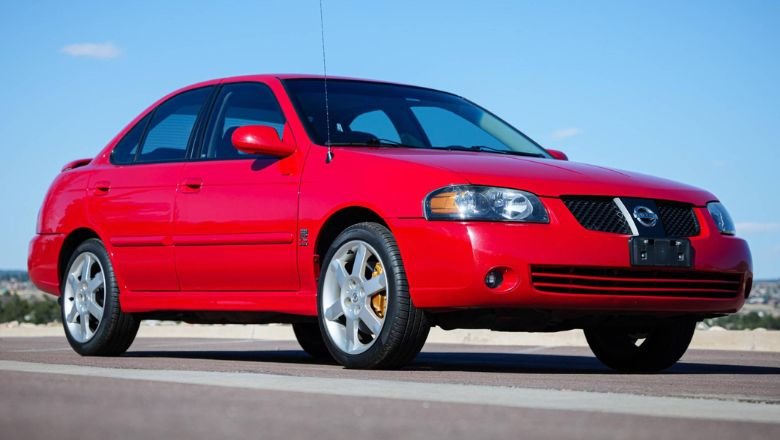
The choice between manual or automatic transmission added to the versatility of these vehicles, catering to different driving preferences.The improvements in transmission gearing and build quality for the SE-R Spec V model resulted in enhanced performance, making it a compelling option for those seeking a bit more excitement behind the wheel.
Buyers can enjoy a well-rounded driving experience while also benefiting from commendable fuel efficiency ratings atures and infotainment upgrades included in these models.
The Worst Years: 2000, 2001, 2002, 2003
The Nissan Sentra models from 2000 to 2003 have indeed faced significant engine issues, leading to numerous complaints and recalls by the NHTSA. The 2000 Sentra, in particular, experienced engine stalling problems at low RPMs, which caused inconvenience and safety concerns for many consumers.
It wasn’t until later recalls in 2001 and 2003 that Nissan finally addressed a recurring problem with a faulty crank position sensor that affected multiple model years.
Suspension problems also plagued the early 5th-generation Nissan Sentra models, further damaging their reputation for reliability.The Nissan Sentra models from 2000 to 2003 faced a series of recalls and safety issues that significantly impacted their reliability.
The lower control arm bolt problem in the 2000 and 2001 models, along with the exhaust pipe hanger pin issue in the 2002 model, raised serious safety concerns on the road. New problems with the airbag systems emerged, further diminishing the reliability of these particular years Despite some improvements in addressing these issues by 2003.
The high number of recalls documented by the NHTSA for the 2002 Sentra model highlights its particularly problematic nature within this generation. The combination of mechanical issues and safety concerns made the 2000 to 2003 Sentra models some of the least reliable in terms of overall performance and safety standards.
Best & Worst Years for Nissan Sentra 6th Generation (2007-2012)
The updated sixth generation of the Sentra showcased the company’s commitment to addressing previous criticisms by introducing a new design language and a range of amenities. This focus on improvement resulted in a better-performing Sentra, as evidenced by its impressive 4.3 Kelley Blue Book score.
The company’s efforts to enhance the driving experience and appeal of the Sentra have clearly paid off with this new generation.The years 2009 and 2012 stand out as the best options, offering a combination of reliability and performance for those considering an Avalon from this generation.
It is worth noting that the 2007 and 2011 models also remain solid choices for buyers looking for a dependable vehicle with a good track record.
The Best Years: 2009, 2012
The 2009 and 2012 Nissan Sentra models indeed stand out as notable years for the vehicle’s refinement and performance upgrades. These models featured a 2.0L I4 engine that delivered around 140 hp, providing a balanced blend of power and efficiency for everyday driving.
The sportier SE-R variant boasted a more robust 2.5L I4 engine producing approximately 177 hp, catering to those seeking a more spirited driving experience.Nissan introduced transmission options like the traditional 6-speed manual and the innovative Xtronic CVT, offering smoother gear changes and improved fuel efficiency.
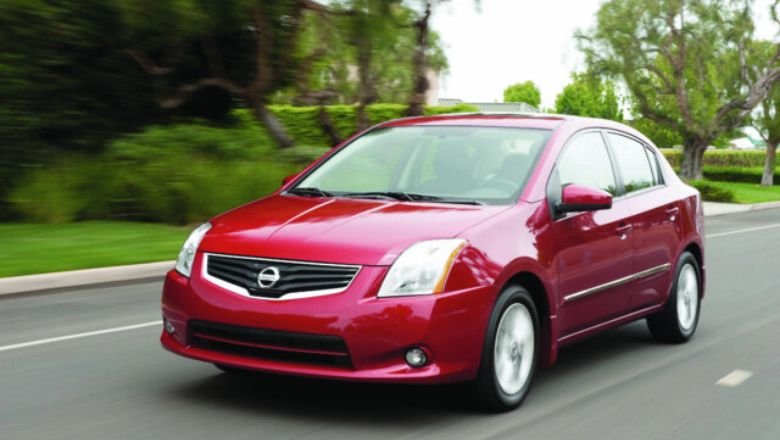
The advancements in safety features such as enhanced airbag systems, reinforced chassis, and improved braking mechanisms further solidified the Sentra’s reputation as a reliable and secure vehicle. These models continue to be favored choices among consumers looking for a well-rounded compact sedan option with commendable fuel efficiency ratings of 19 mpg in the city and 35 mpg on the highway.
The Neutral Years: 2007, 2011
The 2007 and 2011 Sentra models, despite their reliability, did experience some issues that owners should be aware of. The 2007 Sentra, while offering a more spacious interior and updated design, had concerns related to steering and airbags.
These problems persisted in subsequent model years like the 2008 and 2009 versions. Moving to the 2011 Sentra, although many earlier issues had been resolved, new challenges emerged such as reports of engine stalling. A recall was issued in 2011 to address Electronic Control Module malfunctions and battery cable harness defects.
It is important for potential buyers or current owners of these Sentra models to be informed about these past issues so they can make educated decisions regarding maintenance and repairs. While both the 2007 and 2011 models had their share of hiccups, staying proactive with regular inspections and addressing any recalls promptly can help mitigate potential problems and ensure a smoother ownership experience.
The Worst Years: 2008, 2010
It is advisable to proceed with caution when it comes to the Nissan Sentra models from 2008 and 2010. The 2008 model carried forward some of the airbag and steering issues from the previous year, while also introducing new challenges related to transmission and suspension.
One common problem reported by owners was rear wheel misalignment, which led to premature wear of the rear tires. Moving on to the 2010 Sentra, customers faced issues such as intermittent Air Bag light illuminations and engine stalling becoming more frequent. These reliability concerns prompted Nissan to issue recalls in response to consumer feedback.
Both the 2008 and 2010 Nissan Sentra models have been cited as some of the least reliable years for this vehicle. Potential buyers should be aware of these challenges before making a purchase decision with a combination of ongoing issues from previous models and new complications arising.
Best & Worst Years for Nissan Sentra 7th Generation (2013-2019)
The 7th generation of the Nissan Sentra, which ran from 2013 to 2019, brought about significant changes in design, technology, and performance. The post-facelift models from 2017 to 2019 are often regarded as the best iterations of the Sentra, showcasing improvements in various aspects.
The earlier years of this generation, including 2013 to 2016, have been associated with powertrain issues such as engine and transmission problems.It is crucial for potential buyers or current owners of a 7th generation Nissan Sentra to conduct thorough research and inspections before making any decisions.
Checking the vehicle identification number (VIN) can provide valuable insights into the car’s history and potential issues. By being informed and proactive, individuals can better navigate the nuances of this particular generation of the Nissan Sentra and make well-informed choices regarding their purchase or ownership experience.
The Best Years: 2017, 2018, 2019
The 5th generation Nissan Sentra saw significant improvements in the models from 2017 to 2019. Nissan made notable changes to enhance the driving experience With a focus on rectifying past grievances with a focus on rectifying past grievances.
The introduction of a 1.8L DOHC I4 engine with around 130 hp marked a substantial improvement in powertrain efficiency and responsiveness. Paired with the Xtronic CVT, these models boasted impressive fuel efficiency ratings of 21 mpg in the city and 42 mpg on the highway.
The range of trim levels offered, including S, FE S, SV, SR, and SL, catered to various preferences while maintaining the reworked CVT for enhanced performance. The option of a six-speed manual transmission in the base S model also provided drivers with more control over their driving experience.
The Worst Years: 2013, 2014, 2015, 2016
It is advisable to steer clear of the 2013 to 2016 model years if you are considering purchasing a Nissan Sentra. These particular models have been associated with a high number of complaints, particularly related to their CVT transmission.
Owners have reported issues such as loss of power, erratic acceleration, jerking, and even complete transmission failure. The problems seem to have persisted across multiple model years within this range, making it a risky choice for potential buyers.
Ratings from reputable automotive platforms like Edmunds and Kelley Blue Book reflect owner dissatisfaction with these vehicles, with scores as low as 2.7 and 3.8 points respectively. Considering the frequency and severity of reported problems, it may be wise to explore other options if you are in the market for a reliable and trouble-free vehicle.
Best And Worst Years For Nissan Sentra 8th Generation (2020-Present)
While the 8th generation of Nissan Sentra does rrepresent a significant step forward in terms of design and performance, it is important for consumers to be aware of potential issues with certain features. The Forward Collision Avoidance system and steering problems reported in the 2020 model year are concerning, as safety features are a critical aspect of any vehicle.
It is crucial for car buyers to thoroughly research and test drive any vehicle before making a purchase decision, especially when it comes to newer technologies that may still have some kinks to work out. It is worth noting that subsequent model years may have addressed these issues through software updates or hardware improvements despite the challenges faced by the 2020 Nissan Sentra.
As with any major purchase, it’s always wise to stay informed about the latest developments and consumer feedback regarding specific car models.
The Best Years: 2023
The 2023 Sentra truly stands out as a remarkable addition to the eighth-generation Nissan Sentra lineup. It has garnered high praise from industry experts and consumers alike with its sleek design, powerful engine, and impressive fuel efficiency. The three trim levels offered cater to different preferences and needs, ensuring there is a model suited for everyone.
The modernized exterior with sharper lines and a more aggressive stance gives the 2023 Sentra a bold presence on the road, while the luxurious interior provides comfort and style. The combination of performance, design, and efficiency make the 2023 Sentra a top choice in its class, setting a new standard for compact sedans.
The Neutral Years: 2021, 2022
The 2021 and 2022 Sentra models have proven to be reliable and solid choices for consumers. Nissan’s dedication to addressing concerns, particularly regarding the Forward Collision Avoidance (FCA) system malfunctions, demonstrates their commitment to improving the driving experience.
Nissan has shown a willingness to rectify issues and actively seek feedback for future enhancements while these models may still face some challenges.Noteworthy features such as improved infotainment systems, better fuel efficiency, and enhanced safety mechanisms have been key highlights of the 2021 and 2022 Sentra models.
The recognition of the 2022 Sentra as an IIHS Top Safety Pick further underscores Nissan’s efforts in prioritizing safety and innovation in their vehicles.
The Worst Years: 2020
It is important to note that every car model may have its own set of issues While the 2020 Nissan Sentra had some reported concerned. The Forward Collision Avoidance system malfunctioning and steering-related problems are definitely serious safety concerns that should not be taken lightly.
It is commendable that Nissan took action by issuing a recall to address the bent tie rod issue and improve steering control.It is always recommended for owners to stay informed about any recalls or potential issues with their vehicles and to promptly address any safety concerns with their dealership or manufacturer.
Nissan Sentra VS Ford Focus VS Jeep Wrangler
The Nissan Sentra offers fuel efficiency and a comfortable ride, ideal for daily commuting. The Ford Focus combines agile handling with a compact design, perfect for city driving. The Jeep Wrangler stands out with its off-road capability and rugged build, making it the best choice for adventure seekers. Each vehicle caters to different driving needs.
Nissan Sentra Average Resale Values
This graph shows average resale values of Nissan Sentra:
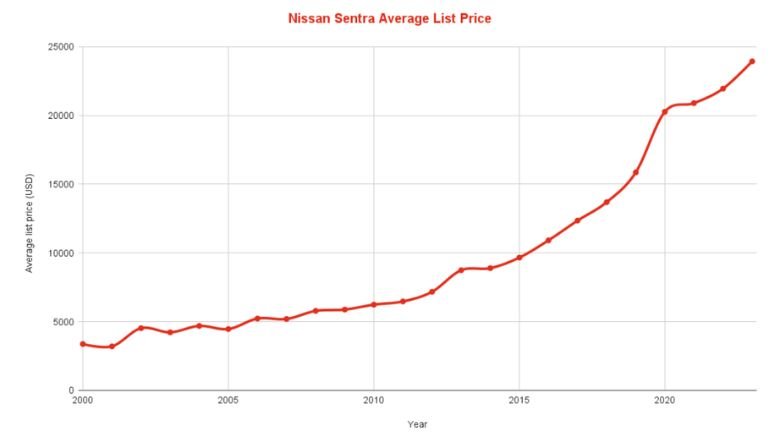
Conclusion
The Nissan Sentra has seen both highs and lows throughout its various model years. Some years have been marked by impressive upgrades in technology, design, and performance, others have fallen short in terms of reliability and customer satisfaction.
It is important for consumers to carefully research and consider the specific features and improvements offered in each year’s model before making a purchasing decision. Remember to test drive multiple models and consult expert reviews to make an informed choice when selecting the best and worst Nissan Sentra Years.
Faqs
What Year Did Nissan Sentra Have Bad Transmission?
The Nissan Sentra had known transmission issues in the early 2000s, specifically in the model years 2004 and 2005. These models were reported to have problems with their automatic transmissions, including issues with slipping gears, rough shifting, and premature failure.
What Year Of Nissan Sentra Is Best?
The best year of Nissan Sentra will ultimately depend on your specific needs and preferences. Many people consider the 2013 Nissan Sentra to be a good choice due to its fuel efficiency, comfortable ride quality, and spacious interior. The 2013 model also received high safety ratings and had a reliable reputation.
https://automotivesbase.com/best-and-worst-nissan-pathfinder-years/
https://automotivesbase.com/best-and-worst-honda-pilot-years/

